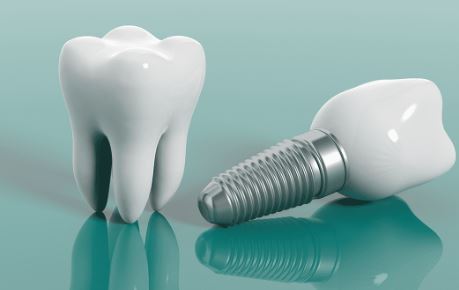How to Overcome Fear of the Dentist: Tips and Tricks

How to Overcome Fear of the Dentist: Tips and Tricks
Fear of the dentist, also known as dental anxiety or dentophobia, is a common issue that affects millions of people worldwide. For many, just the thought of sitting in the dentist's chair can trigger stress, panic, or discomfort. Unfortunately, this fear often prevents people from seeking the dental care they need, which can lead to more serious oral health problems over time.
The good news is that there are many ways to manage and overcome this fear. With the right mindset, preparation, and strategies, even the most anxious patients can feel more comfortable during dental visits. In this article, we will explore practical tips and tricks to help you overcome your fear of the dentist and take control of your oral health.
"A healthy smile starts with facing your fears."
1. Understand the Root Cause of Your Fear
The first step in overcoming dental anxiety is understanding why you feel this way. Fear of the dentist can stem from a variety of factors, such as:
- Past negative experiences: Painful or traumatic experiences at the dentist during childhood or adulthood.
- Fear of pain: A common concern, especially for those who anticipate discomfort during procedures.
- Loss of control: Feeling vulnerable or unable to see what’s happening during the treatment.
- Fear of needles or tools: Many people are afraid of the sharp instruments or the sound of drills.
- Embarrassment: Anxiety about the condition of your teeth or potential judgment from the dentist.
By identifying the specific source of your fear, you can better address it and work towards overcoming it.
"Acknowledging your fear is the first step towards conquering it."
2. Choose the Right Dentist
Not all dentists are the same, and finding a professional who understands your concerns can make a huge difference. Look for a dentist who specializes in treating anxious patients or one with a reputation for being gentle and empathetic.
Tips for finding the right dentist:
- Ask for recommendations: Friends, family, or online reviews can help you find a dentist who is known for their caring approach.
- Schedule a consultation: Meet with the dentist before your appointment to discuss your fears and assess their demeanor.
- Look for sedation dentistry options: Some dentists offer sedation techniques to help patients relax during procedures.
A supportive dentist will listen to your concerns and work with you to create a comfortable experience.
"A compassionate dentist can turn a fearful visit into a positive experience."
3. Communicate Your Fears
Open communication with your dentist is key to overcoming dental anxiety. Don’t be afraid to share your concerns and let them know what makes you nervous. This allows the dentist to adjust their approach to suit your needs.
How to communicate effectively:
- Be honest: Explain your fears clearly, whether it’s about pain, needles, or specific procedures.
- Ask questions: Understanding what will happen during the visit can help ease your anxiety.
- Set signals: Agree on a hand signal to indicate if you need a break or feel uncomfortable during treatment.
When your dentist is aware of your fears, they can take steps to ensure your comfort and build trust.
4. Start with Small Steps
If you’ve avoided the dentist for a long time, it’s okay to start small. You don’t have to jump into a major procedure right away. Begin with a simple consultation or a basic cleaning to get used to the environment and build confidence.
Gradual steps to ease anxiety:
- Schedule a consultation to meet the dentist and staff without undergoing any treatment.
- Book a short and simple appointment, such as a teeth cleaning.
- Gradually work your way up to more complex procedures as your comfort level improves.
Taking it one step at a time can help reduce the overwhelming feeling of dental visits.
"Small victories lead to big progress."
5. Practice Relaxation Techniques
Relaxation techniques can help calm your mind and body before and during a dental visit. These methods are especially useful for reducing physical symptoms of anxiety, such as a racing heart or shallow breathing.
Effective relaxation techniques:
- Deep breathing: Inhale slowly through your nose for a count of four, hold for four seconds, then exhale slowly through your mouth. Repeat several times.
- Progressive muscle relaxation: Tense and relax each muscle group in your body, starting from your toes and working your way up to your head.
- Visualization: Close your eyes and imagine yourself in a peaceful, calming place, such as a beach or forest.
- Meditation apps: Use apps like Calm or Headspace to guide you through relaxation exercises before your appointment.
Practicing these techniques regularly can help you stay calm and focused during dental visits.
"Relaxation starts with a single deep breath."
6. Distract Yourself
Distraction can be a powerful tool for reducing anxiety during a dental visit. Focusing on something other than the procedure can help take your mind off your fears.
Ways to distract yourself:
- Listen to music or podcasts: Bring headphones and play your favorite tunes or an interesting podcast.
- Watch videos: Some dental offices have TVs or screens where you can watch movies or shows during treatment.
- Squeeze a stress ball: Keeping your hands occupied can provide a sense of control.
Choosing a distraction method that works for you can make the experience more manageable.
7. Consider Sedation Dentistry
For patients with severe dental anxiety, sedation dentistry can be a game-changer. Sedation techniques help you relax during the procedure, making it easier to get through your appointment.
Types of sedation:
- Nitrous oxide (laughing gas): A mild sedative that helps you feel calm while remaining conscious.
- Oral sedation: Medication taken before the appointment to reduce anxiety.
- IV sedation: Administered through a vein, this option is suitable for more invasive procedures and provides a deeper level of relaxation.
Discuss sedation options with your dentist to determine the best choice for your needs.
"Sedation dentistry can turn a dreaded visit into a stress-free experience."
8. Bring a Support System
Having someone you trust accompany you to your dental appointment can provide a sense of comfort and security.
Benefits of a support system:
- Moral support: A friend or family member can reassure you and help calm your nerves.
- Distraction: Chatting with someone can keep your mind off the procedure.
- Assistance: They can help you communicate with the dentist if needed.
Let your companion know how they can best support you during the visit.
"A supportive hand can make all the difference."
9. Reward Yourself After the Appointment
Creating a positive association with dental visits can help reduce anxiety over time. Reward yourself after each appointment to celebrate your courage and effort.
Ideas for rewards:
- Treat yourself to your favorite meal or dessert.
- Plan a fun activity, such as going to the movies or spending time with friends.
- Buy something small that makes you happy, like a book, a piece of clothing, or a plant.
Over time, these rewards can make dental visits feel less daunting and more like an accomplishment.
"Celebrate your progress, no matter how small."
10. Focus on the Benefits of Dental Care
Remind yourself why it’s important to visit the dentist regularly. Good oral health is essential for overall well-being, and regular check-ups can prevent serious issues like gum disease, tooth decay, and infections.
Benefits to keep in mind:
- A healthier smile: Regular dental care helps keep your teeth and gums in top condition.
- Early detection: Dentists can identify and treat problems before they worsen.
- Improved confidence: A clean and healthy smile boosts self-esteem.
Focusing on these positive outcomes can help motivate you to prioritize your dental health.
Frequently Asked Questions
1. Is it normal to be afraid of the dentist?
Yes, dental anxiety is common, and many people experience some level of fear. The key is finding strategies that work for you to manage and overcome it.
2. Can dentists help with dental anxiety?
Absolutely. Many dentists are trained to work with anxious patients and offer techniques or sedation options to make you feel more comfortable.
3. How can I make my first visit less intimidating?
Start with a consultation to meet the dentist and staff. This allows you to discuss your fears and get to know the environment without undergoing treatment.
4. What if I haven’t been to the dentist in years?
Don’t worry! Dentists understand that life happens, and they’re there to help you, not judge you. Take the first step by scheduling a visit – it’s never too late to care for your oral health.
Overcoming your fear of the dentist may take time, but with the right approach, it’s entirely possible. By understanding your fears, choosing a supportive dentist, and practicing relaxation techniques, you can take control of your dental health and feel more confident about future visits. Remember, your smile is worth it!
A bejegyzés trackback címe:
Kommentek:
A hozzászólások a vonatkozó jogszabályok értelmében felhasználói tartalomnak minősülnek, értük a szolgáltatás technikai üzemeltetője semmilyen felelősséget nem vállal, azokat nem ellenőrzi. Kifogás esetén forduljon a blog szerkesztőjéhez. Részletek a Felhasználási feltételekben és az adatvédelmi tájékoztatóban.




